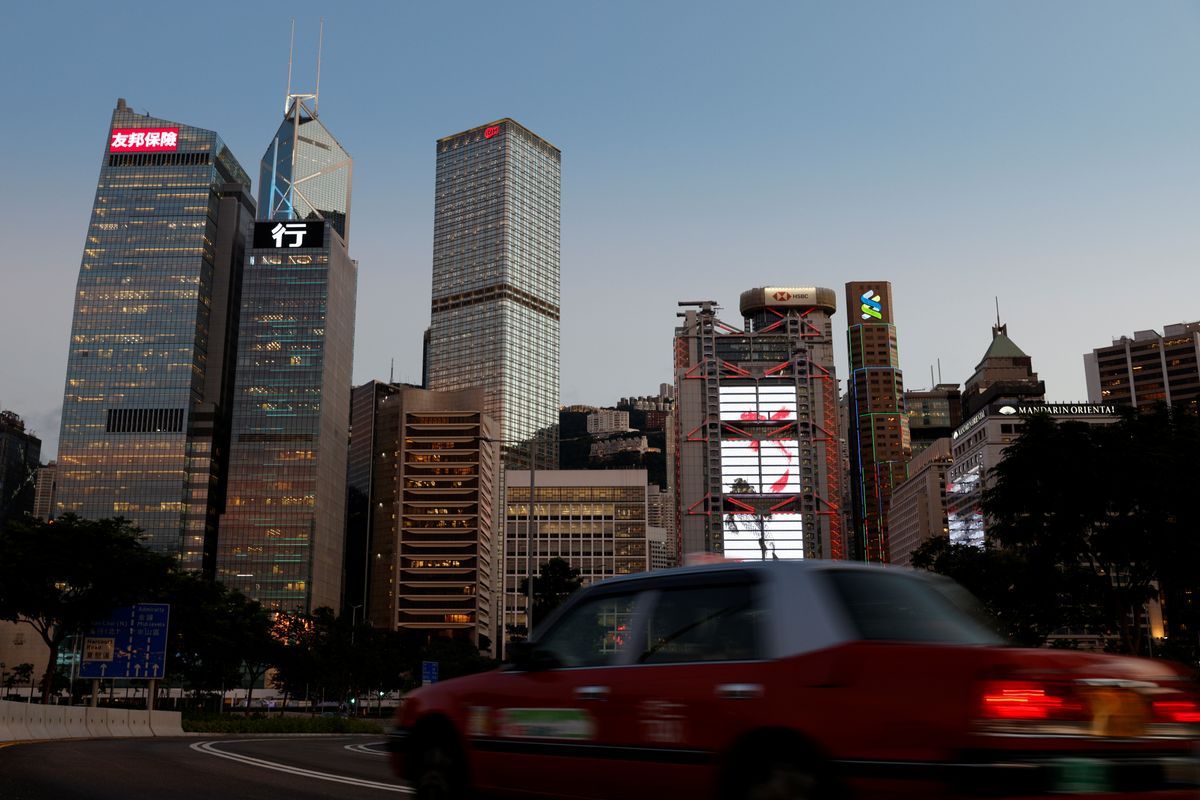HKMA’s latest move to protect Hong Kong's currency peg to the greenback
Hong Kong's local currency (HKD) has been pegged to the greenback (USD) since 1983.

A few minutes every morning is all you need.
Stay up to date on the world's Headlines and Human Stories. It's fun, it's factual, it's fluff-free.
The backstory: Hong Kong's local currency (HKD) has been pegged to the greenback (USD) since 1983. This helps keep the currency stable, meaning more people will park their investments in Hong Kong, which has helped it become a global financial hub. The ideal range is to keep it valued between HK$7.75 and HK$7.85 against the USD. This trading band for the peg was set in 2005.
But the HKD has been facing challenges. There's been a constant outflow of capital as the USD goes up, which has caused HKD's value to drop. But, Hong Kong has a backup plan in the form of its Exchange Fund – one of the biggest financial reserves in the world.
More recently: Because there's been a gap between the interest rates in Hong Kong and the US, traders have been doing something called "carry trades." That means they move money out of Hong Kong to take advantage of the better returns from the relatively higher US interest rates, putting extra pressure on Hong Kong's currency and hurting the economy.
To stop the currency from dropping too much, the Hong Kong Monetary Authority (HKMA) has been buying up HKD since the US started hiking rates in March 2022. It did this 41 times in 2022, spending HK$242.08 billion (around US$31 billion) to keep the currency's value pegged to the USD within the trading band.
The development: On Wednesday, the HKMA stepped in and bought HK$4.22 billion (about US$538 million) and then sold an equal amount of US currency to keep the peg in the range. Experts expect the local currency to regain strength with China's reopening causing more demand for HKD returns.
Key comments:
"The Hong Kong dollar weakening is likely to be short-lived," said Samuel Tse, an economist at DBS Bank in Hong Kong. "When the demand for Hong Kong dollar assets returns amid China's reopening, the local currency will strengthen again."
"Despite the heavy loss last year, the Exchange Fund still has a size of over HK$4 trillion, which can support the local currency and maintain the peg," said HKMA CEO Eddie Yue Wai-man in a Legislative Council meeting last week. "The public do not need to worry about the Exchange Fund's losses – they should take a long-term view of the investment."
"Some investors may be selling Hong Kong dollars and buying other assets," said Robert Lee Wai-wang, a lawmaker representing the financial sector in the city. "However, the situation should not cause any alarm. Any measures that the HKMA adopts should bring the Hong Kong dollar exchange rate to within the normal trading band."




Comments ()